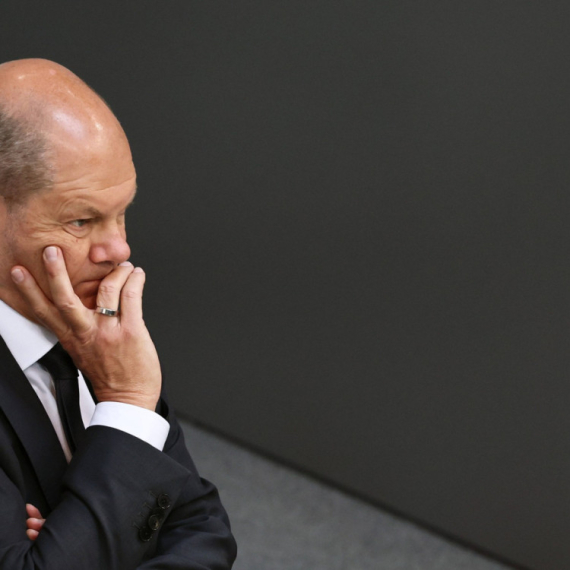“No political will to tackle corruption”
Transparency Serbia (TS) has told daily Danas that the government is not showing the political will to tackle corruption.
Thursday, 09.10.2008.
13:30

Transparency Serbia (TS) has told daily Danas that the government is not showing the political will to tackle corruption. The draft law for the creation of an anti-corruption agency was confirmed without any serious debate, according to the non-governmental organization. “No political will to tackle corruption” A debate is under way in parliament regarding the law, though many experts question whether the government has the moral right to propose the formation of a body before enabling the existing ones to fulfill their legal obligations and tackle the problems they face before their dissolution, TS Program Director Nemanja Nenadic says. Nenadic says that it is a paradox that this law has entered a joint parliamentary debate with the data protection law, in which the government supports a solution limiting the monitoring powers of one of the existing independent institutions, the trustee for information of public importance. “It is a great shame that the draft agency law was not discussed seriously by experts between February and September this year, since many new things have been added to it recently. Instead, we will only have a short parliamentary debate, which will affect the quality of the document and the implementation of the regulations,” he points out. He says that the Anti-Corruption Agency powers are not adequate “even in terms of monitoring strategy application, or checking the accuracy of information in civil servants’ property reports, or the control of the financing of political parties.” “TS proposed 24 amendments to MP groups and the government that would help improve the situation, but it seems that only four have entered procedure through the authorized proposers, so we do not have much cause for optimism,” Nenadic adds. Miomir Brkic, an economic expert and former member of the Anti-Corruption Council, told Danas that Serbia did not need new institutions to tackle the problem of corruption, but new laws on the financing of political parties, enabling the work of a book-keeping commission and the adoption of European laws. “The problem with the Anti-Corruption Council was that its jurisdiction was never accurately defined. As a result, tensions between all the political factions in power were inevitable, while there was also a lack of expeditiousness,” Brkic said. He said that the basic problem was that there was no political will to implement the anti-corruption laws. “We had two governments with Vojislav Kostunica, whose alleged priority was tackling corruption, and every year we are in the same position or worse when the corruption index pops up. Serbia is not a lawful state, and that is the basic problem,” Brkic said.
“No political will to tackle corruption”
A debate is under way in parliament regarding the law, though many experts question whether the government has the moral right to propose the formation of a body before enabling the existing ones to fulfill their legal obligations and tackle the problems they face before their dissolution, TS Program Director Nemanja Nenadić says.Nenadić says that it is a paradox that this law has entered a joint parliamentary debate with the data protection law, in which the government supports a solution limiting the monitoring powers of one of the existing independent institutions, the trustee for information of public importance.
“It is a great shame that the draft agency law was not discussed seriously by experts between February and September this year, since many new things have been added to it recently. Instead, we will only have a short parliamentary debate, which will affect the quality of the document and the implementation of the regulations,” he points out.
He says that the Anti-Corruption Agency powers are not adequate “even in terms of monitoring strategy application, or checking the accuracy of information in civil servants’ property reports, or the control of the financing of political parties.”
“TS proposed 24 amendments to MP groups and the government that would help improve the situation, but it seems that only four have entered procedure through the authorized proposers, so we do not have much cause for optimism,” Nenadić adds.
Miomir Brkić, an economic expert and former member of the Anti-Corruption Council, told Danas that Serbia did not need new institutions to tackle the problem of corruption, but new laws on the financing of political parties, enabling the work of a book-keeping commission and the adoption of European laws.
“The problem with the Anti-Corruption Council was that its jurisdiction was never accurately defined. As a result, tensions between all the political factions in power were inevitable, while there was also a lack of expeditiousness,” Brkić said.
He said that the basic problem was that there was no political will to implement the anti-corruption laws.
“We had two governments with Vojislav Koštunica, whose alleged priority was tackling corruption, and every year we are in the same position or worse when the corruption index pops up. Serbia is not a lawful state, and that is the basic problem,” Brkić said.



























































Komentari 0